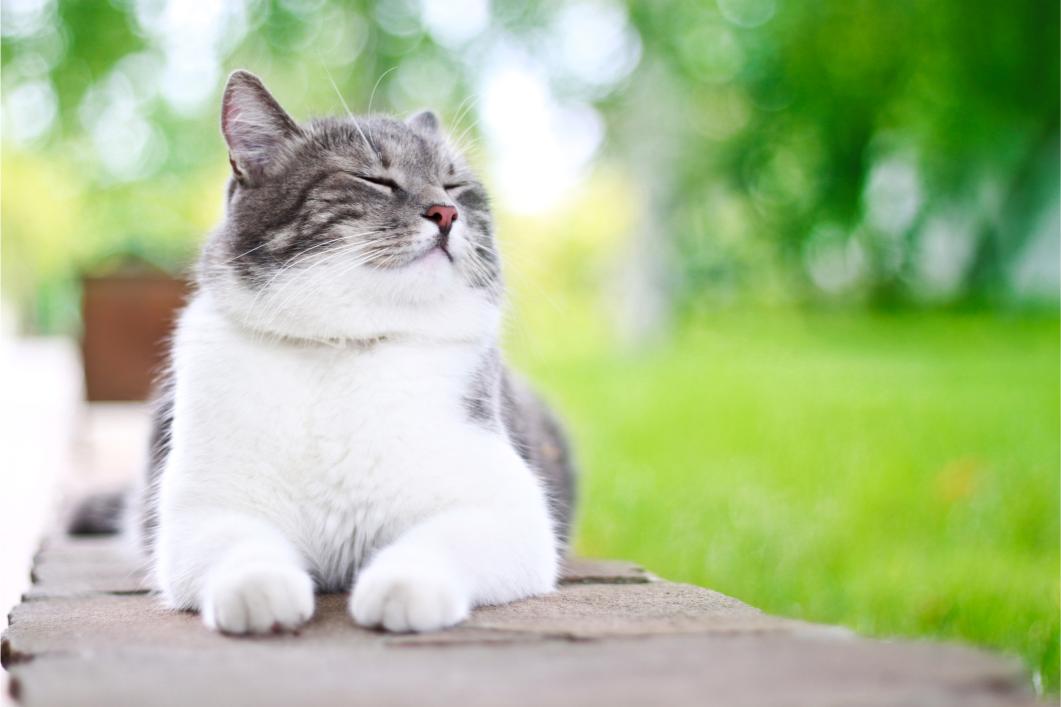Why Cats Love to Sunbathe—And When It Can Be Dangerous
If you’ve ever fallen asleep in the sun, you know how comforting this experience can be. For cats, sunbathing is the ultimate daily ritual that combines two things they appreciate: sleeping safely while achieving full body warmth. Their natural instincts may be reflected in this behavior, but is there a time when sleeping in the sun should be monitored or limited?
From the Desert
The ancient ancestors of today’s domestic felines had to seek heat as a way to bring up internal body temperature during inactivity or sleep. Because of their high sleep needs, an external heat source can yield a much deeper, more productive snooze session. The sun is the obvious choice for most felines, but sometimes too much of a good thing can be bad.
Going Overboard
As with anything in life, moderation is the key. Most cats will instinctively know when they are too hot to continue sunbathing and relocate to a cooler spot. However, it is possible for a cat to overdo it while sunbathing and experience dangerous symptoms of dehydration, heat stroke, and sunburn to the ears, nose, and feet.
Water Conservation
Older cats and those with diabetes and/or chronic disease are highly susceptible to dehydration. Of course, senior cats and those with compromised health may also be more inclined to sleep throughout the day. If they sunbathe without water breaks or cooling down periods, they may be more likely to dehydrate. Since many cats get much of their water intake through food, increase wet food portions if possible and regularly refresh water bowls.
Too Much Heat
Heatstroke can be very serious if not handled promptly. Often seen hand in hand with dehydration, heat stroke can cause a cat to pant, drool, collapse, or become lethargic. Always look at the gums; if they are bright red, immediate veterinary assistance is crucial to correcting the systemic effect of heatstroke.
Sensitive Skin
Extended and regular exposure to the sun’s harmful rays can burn the delicate skin tissue of many cat breeds, especially hairless or light-furred varieties. While the sun does have many benefits to the skin, including stimulating the production of healthy hormones, too much can burn the sensitive skin on the ear tips, nose, lips, feet, and belly. Skin cancer is not rare in cats; reducing exposure to the sun’s rays during the middle of the day is good prevention.
But It Feels Good!
Natural light and heat can soothe achy limbs and joints and helps to regulate internal body temperature. Cats seek a spot of sunlight out in particular because it is so comforting and reduces symptoms caused by osteoarthritis and other health concerns.
There is a myth that cats absorb vitamin D through the sunlight as humans do, but they are 100% dependent on their diet for this important vitamin.
Bright Side of Life
It’s not unusual to see a cat tree or perch in the window of most homes with cats. It is because they love the sunshine so much that cat owners cater to them, but it is necessary to approach this indulgence carefully.
If you have questions about your cat’s health and behavior, please call us at (865) 609‑0311. Our veterinarians and staff are always here to help at Volunteer Veterinary Hospital.


